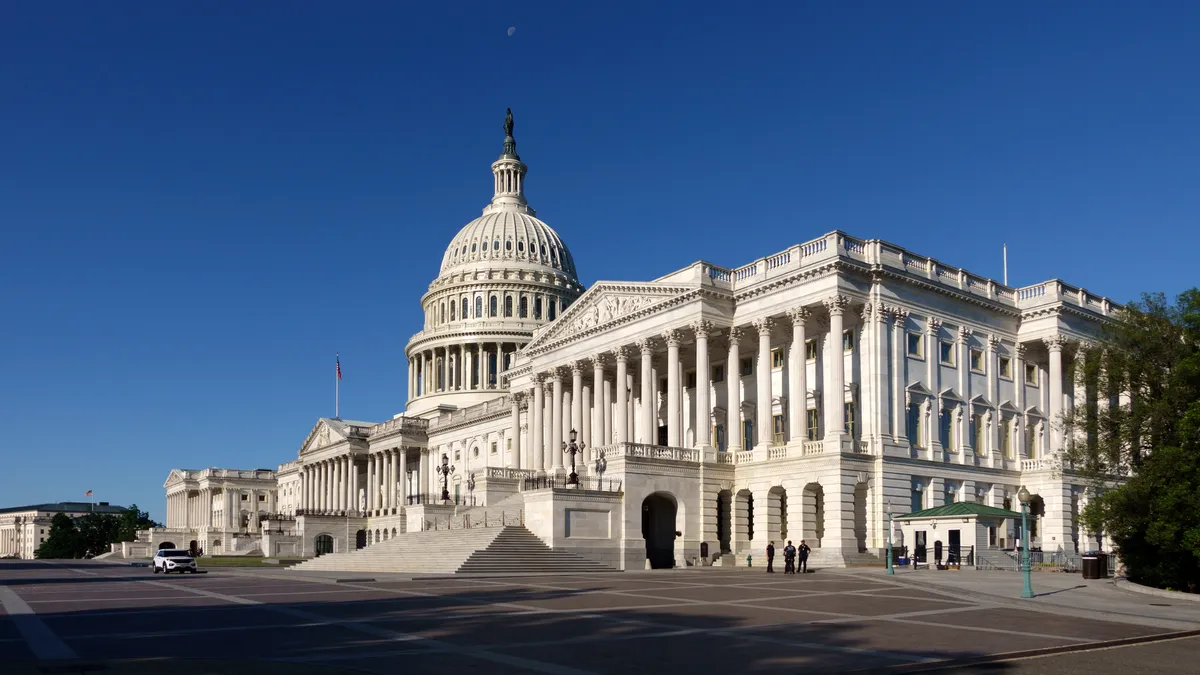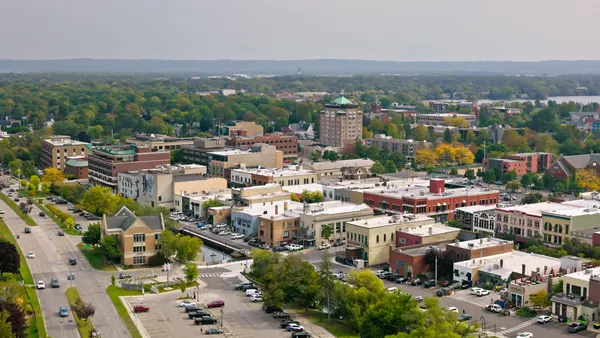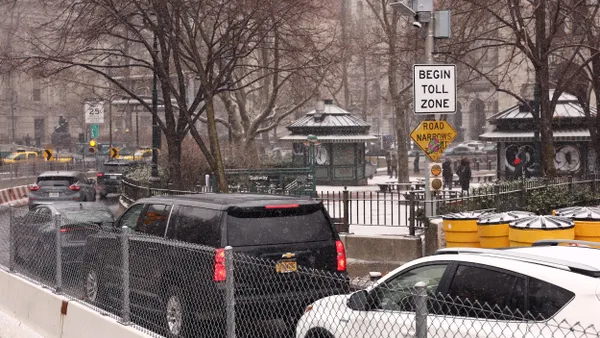Dive Brief:
- The U.S. House Appropriations Committee approved $90.4 billion in discretionary allocations for the fiscal year 2025 combined Department of Transportation and Department of Housing and Urban Development federal budgets on July 10, nearly $7.1 billion below the final FY 2024 figure. The bill would cut funding for DOT grant programs 36%, or more than $2 billion.
- The draft bill targets a $1.3 billion cut to the Federal Transit Administration from FY 2024, slashing capital investment grants by 66%, according to the Rail Passengers Association, a nonpartisan organization. These grants are used to build new rail and bus transit routes.
- The bill would also block New York’s paused congestion pricing plan, bar some federal agencies from implementing equity and climate plans and prohibit federal funding for a prominent high-speed rail project in California.
Dive Insight:
The Biden administration submitted its FY 2025 budget proposal to Congress on March 11, requesting $109.3 billion for the DOT, an increase of 2.7% over the FY 2024 enacted budget.
“The bill prioritizes the safety of all modes of transportation from our railways to roads and airways,” said Transportation, Housing and Urban Development Subcommittee Chair Steve Womack, R-Ark., in a statement.
The House bill would cut Amtrak’s operational funding by $302 million across the national network and the Northeast Corridor, according to RPA. It would also eliminate funding for the Federal-State Partnership for Intercity Passenger Rail program, which supports capital projects to repair, improve, expand or enhance intercity passenger rail service, RPA said.
“It’s particularly frustrating because, absent these cuts, work on upgrading and expanding the U.S. intercity rail network is poised to finally take off this summer,” said RPA President Jim Mathews in a statement. “Amtrak is on pace to almost double the capital expenditures it’s making to upgrade and replace aging bridges, tunnels, stations, and railcars long past their useful lifespan. Congress should be supporting this work, not applying the brakes.” The House bill also prohibits federal funds for the California High-Speed Rail Authority’s Los Angeles-San Francisco project.
Among non-budget items, the House bill would prohibit New York’s congestion pricing plan, which is currently on indefinite hold. The bill would also block the DOT from implementing automated traffic enforcement technologies such as red-light and speed cameras, which have been found to reduce speeding and cut the number of serious injuries and fatalities up to 44%. The House bill also would prevent DOT and HUD from implementing certain equity plans and the National Highway Traffic Safety Administration’s recently established tighter Corporate Average Fuel Economy standards from taking effect in model year 2027.
In opening remarks July 10 at the committee’s markup hearing, Appropriations Committee Chair Tom Cole, R-Okla., said that the House bill “rejects calls by the Biden Administration to vastly expand climate change and Green New Deal-style programs and rolls back efforts by the Biden Administration to impose a controversial ideological agenda through executive orders and regulations.” However, Cole admitted that whoever wins the election will get to decide the FY 2025 budget, according to RPA.
The Senate Appropriations Committee is due to take up the House bill in a hearing on July 25.












